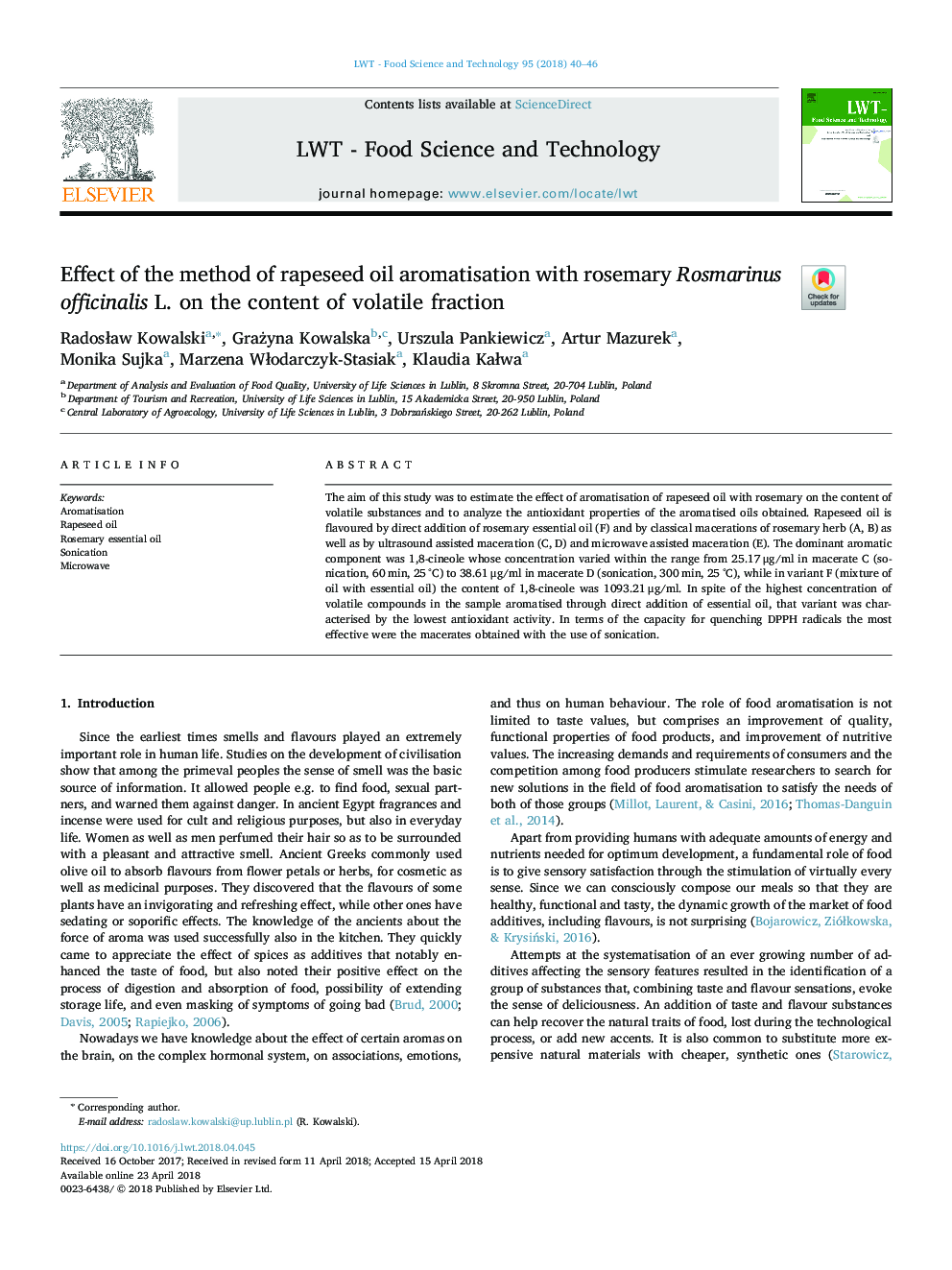| کد مقاله | کد نشریه | سال انتشار | مقاله انگلیسی | نسخه تمام متن |
|---|---|---|---|---|
| 8890812 | 1628504 | 2018 | 7 صفحه PDF | دانلود رایگان |
عنوان انگلیسی مقاله ISI
Effect of the method of rapeseed oil aromatisation with rosemary Rosmarinus officinalis L. on the content of volatile fraction
دانلود مقاله + سفارش ترجمه
دانلود مقاله ISI انگلیسی
رایگان برای ایرانیان
کلمات کلیدی
موضوعات مرتبط
علوم زیستی و بیوفناوری
علوم کشاورزی و بیولوژیک
دانش تغذیه
پیش نمایش صفحه اول مقاله

چکیده انگلیسی
The aim of this study was to estimate the effect of aromatisation of rapeseed oil with rosemary on the content of volatile substances and to analyze the antioxidant properties of the aromatised oils obtained. Rapeseed oil is flavoured by direct addition of rosemary essential oil (F) and by classical macerations of rosemary herb (A, B) as well as by ultrasound assisted maceration (C, D) and microwave assisted maceration (E). The dominant aromatic component was 1,8-cineole whose concentration varied within the range from 25.17â¯Î¼g/ml in macerate C (sonication, 60â¯min, 25â¯Â°C) to 38.61â¯Î¼g/ml in macerate D (sonication, 300â¯min, 25â¯Â°C), while in variant F (mixture of oil with essential oil) the content of 1,8-cineole was 1093.21â¯Î¼g/ml. In spite of the highest concentration of volatile compounds in the sample aromatised through direct addition of essential oil, that variant was characterised by the lowest antioxidant activity. In terms of the capacity for quenching DPPH radicals the most effective were the macerates obtained with the use of sonication.
ناشر
Database: Elsevier - ScienceDirect (ساینس دایرکت)
Journal: LWT - Volume 95, September 2018, Pages 40-46
Journal: LWT - Volume 95, September 2018, Pages 40-46
نویسندگان
RadosÅaw Kowalski, Grażyna Kowalska, Urszula Pankiewicz, Artur Mazurek, Monika Sujka, Marzena WÅodarczyk-Stasiak, Klaudia KaÅwa,